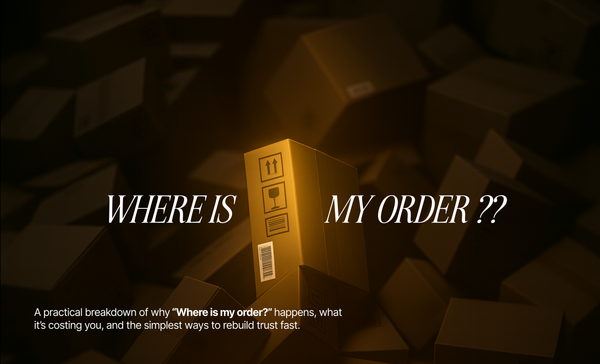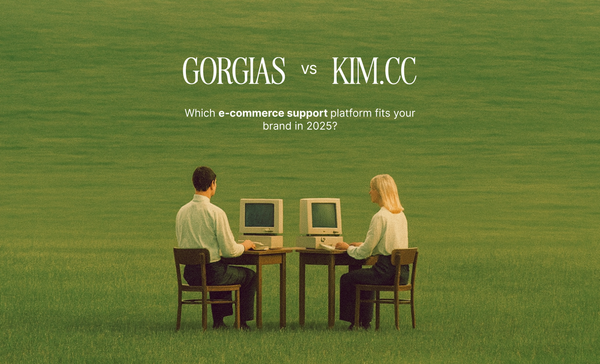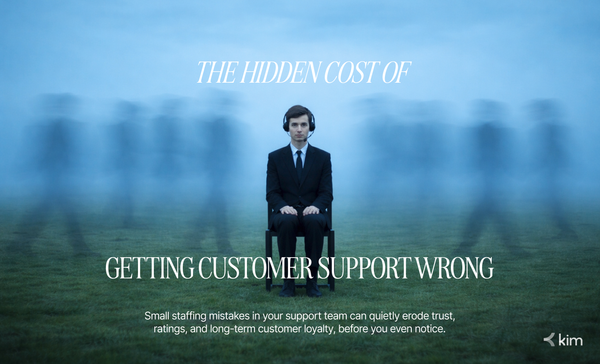Telemarketing Compliance for Ecommerce: How To Legally Follow Up With Customers
Last Updated: October 2025
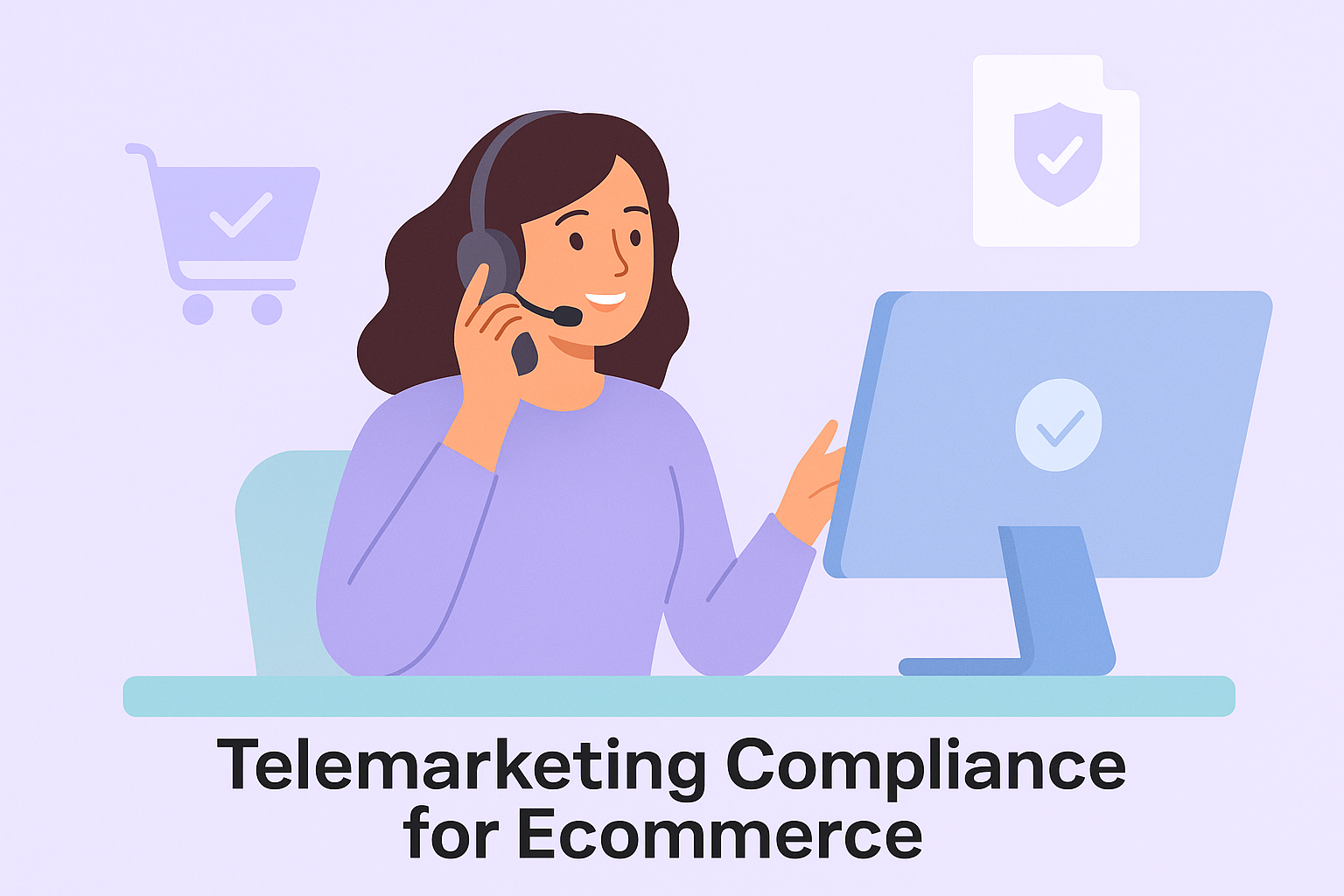
If you run an ecommerce or D2C business, following up with customers, especially those who have abandoned their carts, can drive real revenue.
But here’s the catch: the moment calls enter the picture, many brands freeze.
“Is it even legal to call customers who didn’t complete checkout?”
“Do we need special permissions?”
The good news? It’s a lot simpler than it seems if you understand the rules.
In this guide, we’ll break down the basics of telemarketing compliance for ecommerce, explain what an Established Business Relationship (EBR) really means, and show how kim.cc helps brands stay compliant while maximizing conversions.
Understanding the Legal Landscape of Ecommerce Telemarketing
The line between outreach and "telemarketing" can feel blurry, but it all comes down to consent and context.
Whenever a customer buys from you or provides their phone number (for example, via checkout or a contact form), you form what’s called an Established Business Relationship (EBR).
Why this matters:
- Under the Telemarketing Sales Rule (TSR), an EBR allows you to contact a customer for up to 90 days following their last interaction, even if they are listed on the National Do Not Call (DNC) registry.
- Calls made for legitimate transactional or relationship purposes, like confirming orders or reminding customers of abandoned carts, typically qualify.
Studies show that personalized post-purchase or cart recovery outreach can increase conversion rates by 10–20%, especially when done within the first 48 hours of abandonment.
In short: as long as the customer willingly provided their phone number, your outreach is likely compliant.
Building Compliance Into Your Outreach
Legal clarity doesn’t need to slow down your marketing. Here’s how to keep your outreach compliant and effective.
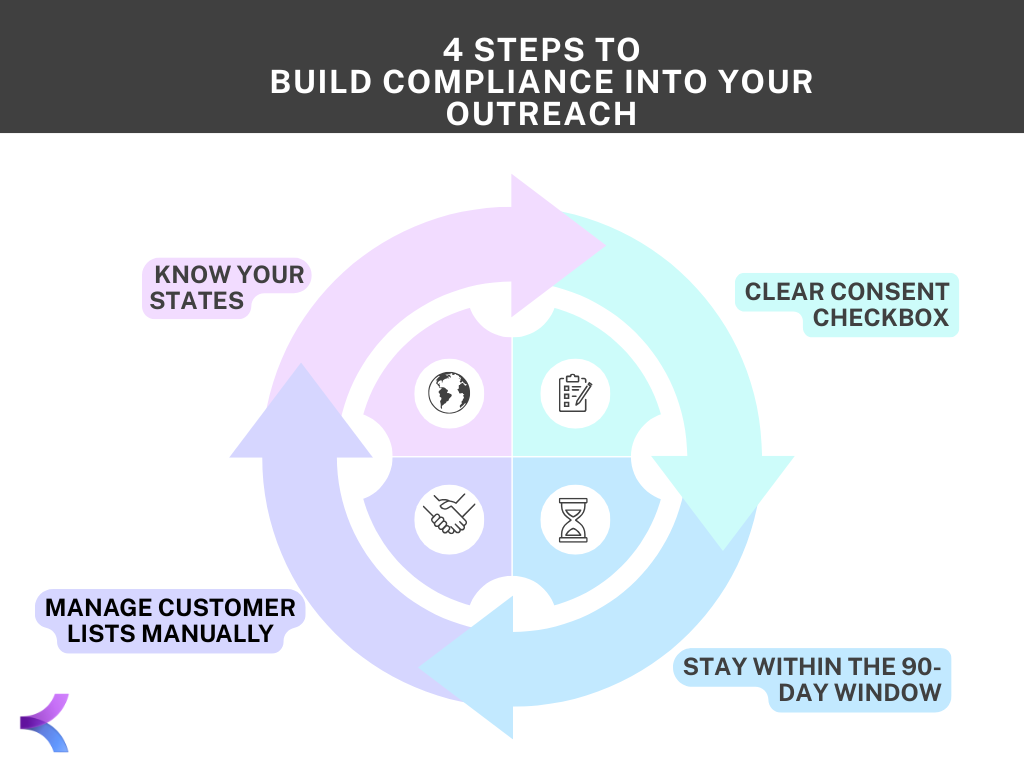
1. Add a Clear Consent Checkbox
Include a short disclaimer near any form or checkout field where you collect phone numbers.
Example:
“By providing my phone number, I agree to receive calls and text messages from [Your Store Name] and its authorized representatives regarding my order or inquiry.”
This covers both the standard EBR window and longer-term consent.
2. Stay Within the 90-Day Window
If you’re calling about cart recovery or post-purchase follow-ups, make sure your outreach happens within 90 days of the customer’s last engagement.
3. Manage Customer Lists Manually (or via kim.cc)
Auto-dialers are heavily regulated under the Telephone Consumer Protection Act (TCPA), but if you’re manually contacting customers who opted in, those laws don’t apply.
With kim.cc, you:
- Control your own outreach list.
- Decide whom to contact.
- Use our tools to organize calls without auto-dialing or spamming customers.
4. Know Your States
Federal laws cover most of the U.S., but a few states like New Jersey and Indiana don’t recognize EBRs. In those states, you need explicit consent before calling.
kim.cc helps manage that by identifying location-specific rules automatically so you never have to track them manually.
How kim.cc Keeps You Compliant (and Confident)
Staying compliant isn’t just about avoiding fines. It’s about protecting customer trust.
Here’s what makes kim.cc different:
- Built-in compliance monitoring to flag outreach to restricted regions automatically.
- Custom consent templates that are easy to add to your site’s forms or popups.
- Hybrid human + AI support means real people guide you through the process while AI ensures consistency and documentation.
No auto-dialing ever because our platform doesn’t initiate contact; you stay in control.
We’re also releasing a state-by-state compliance guide so your team can make quick, informed outreach decisions.
Key Takeaways
Telemarketing compliance can sound intimidating, but for ecommerce brands, it’s actually quite manageable.
Here’s the TL;DR:
- If customers voluntarily provide their phone number, you have a 90-day EBR window to contact them.
- Add clear consent checkboxes for extra protection.
- Stay aware of state-specific exceptions like New Jersey and Indiana.
- Avoid auto-dialers and use platforms like kim.cc that keep your outreach human and compliant.
Action Step:
Run a quick CX audit with kim.cc to ensure your outreach flows, contact forms, and consent checkboxes are compliant before your next campaign.
FAQ
Q1: Can ecommerce brands call customers on the DNC registry?
Yes. If you have an Established Business Relationship (EBR), you may contact them for up to 90 days after their last purchase or inquiry.
Q2: Do abandoned cart calls count as telemarketing?
Not necessarily. If the call is directly related to a customer’s interaction, like helping them complete checkout, it’s considered transactional, not promotional.
Q3: What’s the difference between an auto-dialer and manual outreach?
Auto-dialers randomly or sequentially generate numbers, and those are regulated. Manual calls to existing customers are exempt.
Q4: How can kim.cc help manage compliance?
kim.cc provides tools to manage customer data, monitor state laws, and ensure your outreach remains within legal limits without using auto-dialers.

